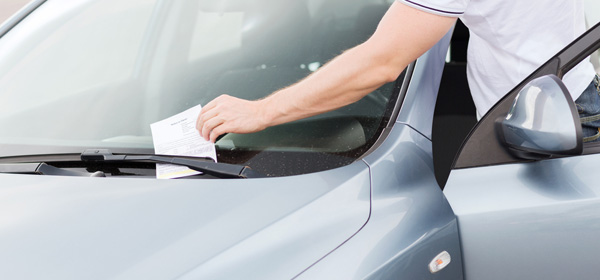Most drivers have copped a parking fine at one time or another. Most of the time, you’ll just pay it and move on. But many parking fines are waived if you make a strong case.
It should be noted that it’s not worth the time to protest a parking fine unless you do the proper preparation. And sometimes, you just have to wear it. You’ll know if you’re in the wrong. However, if you’ve been unfairly fined, here’s how to try to avoid paying up.
The most common reasons for receiving a parking fine are:
- parking without putting money in a meter, or running out of meter credit
- overstaying your prescribed time
- parking in residential or disabled parking areas without proper permits.
The most common defences for parking fines are:
- faulty parking meters
- parking advisory signs too difficult to see
- errors made by the council parking officer.
According to consumer watchdog CHOICE, the appeals that commonly fail are:
- I forgot to check the sign
- my appointment ran over time
- it was raining
- I was in a hurry
- I do not live in the area.
If you believe you’ve been unfairly hit with a parking fine, you can either pay the fine, appeal to the issuing council or contest the case in court.
Before appealing, weigh up the cost involved. Will you lose money from missing work? Will transport costs outweigh the cost of paying the fine? Is it worth the hassle?
Gather as much evidence in your defence as possible. Having sufficient evidence increases the chance of winning an appeal. If you have enough, you may not even need to go to court. If you do need to go to court, you’ll need the evidence anyway.
Such evidence includes taking a photo of your car where it is parked, as well as the closest signage in the area or a photo of the ticket machine you believe was faulty.
Here are some of the successful defences quoted by CHOICE members:
- Penalty notice – Does the offence regulation code match its title? Does the make and registration number match your vehicle?
- Parking signs – Are they visible from where you were parked or were they covered by a tree or any structures?
- Road markings – Are the bay markings clear and visible?
- Lack of parking signs/markings – Are there signs or markings that should be there for the offence you were booked for (such as a “no stopping” sign that wasn’t there when you were fined for this offence)?
- Parking meters – Was the parking meter faulty? Was there a number on the meter or sign nearby with a number you could call to report the faulty meter?
- Parking tickets – Do you have your original tickets to show you did not stay too long in the space or that you did pay to park?
- Medical emergency or vehicle breakdown – Do you have evidence or witnesses to verify that circumstances caused you to commit the parking offence?
Most states allow 28 days to appeal, so get moving. Most councils have an online appeals process, but you may have to do the old snail mail thing instead. Either way, appeals can take months to process, but the sooner you get it done, the sooner you can rest and wait for the process to play out.
And once you appeal, you’ll no longer incur additional penalties for non-payment.
If you must go to court, you’ll have to provide your supporting evidence to convince the magistrate the fine was unfairly or mistakenly issued. Presented with convincing evidence, the court will most likely waive your fine. However, if you lose, you may have to pay the fine and court costs, so make sure the case is good.
If you receive a fine from a private car park and you’re not convinced it’s fair, your first call should be to the consumer agency in your state.
Read more at CHOICE
Have you successfully appealed a parking fine? What was your tactic? Will you share it with our members?
Related articles:
Motorist fines skyrocket
Save on your car costs
Parking ticket outrage

